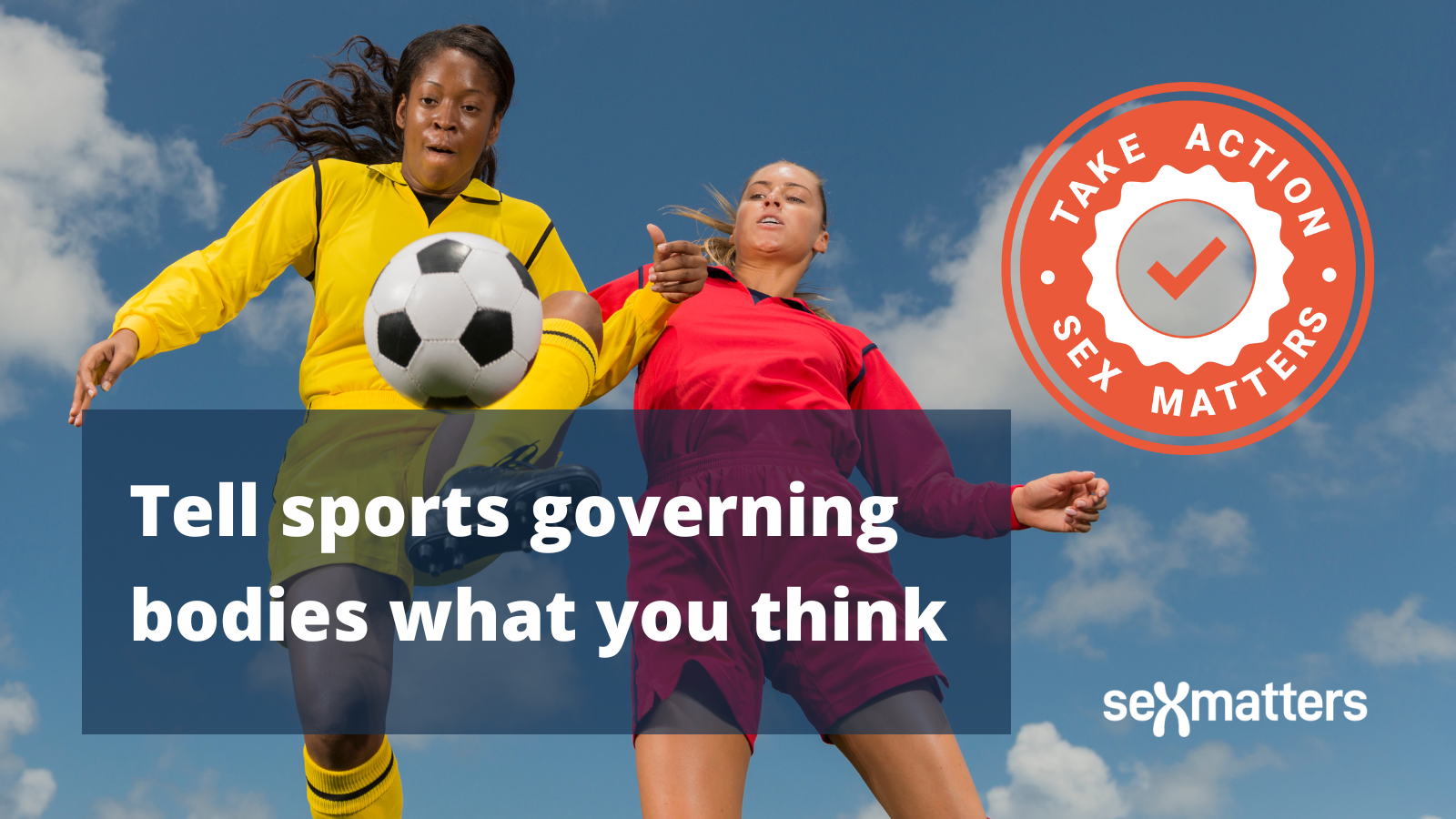Help us to protect women’s sport
If you don’t tell sports governing bodies what you think, they won’t know!

Reports about women adversely affected by male inclusion in women’s categories are becoming more frequent in the media. If you play a sport, or you have family members who play, this is a good time to email your sport’s national governing body and ask what it is doing to restore fairness for women and girls.
Send it to the chief executive and the chair, and ask for it to be shared with the board (anonymously if you prefer). You can usually find emails on the NGB’s website.
- Start by telling them what your involvement is with the sport. If you have a personal story, tell it.
- If your sport is not on this list of those protecting the female category, ask why not. Those in charge need to know that people in their sport support keeping the female category for those born female, and that they should find other ways to ensure trans inclusion which are not at the expense of women and girls.
- You might want to also mention changing rooms and toilets. Here’s some sample copy:
I am concerned about the negative impact of your transgender inclusion policy on women and girls in our sport. This means that women and girls can no longer be confident of male-free play, or male-free changing rooms and toilets. Female events have become mixed-sex events. Women cannot be confident that a “women’s event” will not have a male participant.
- They should already know about the Sports Councils Equality Group guidance, but you might want to link to that guidance and to the Fair Play For Women report, as in this example:
The Sports Councils Equality Group conducted a comprehensive review of this issue, published in September 2021 on their website along with new guidance. They concluded that it is not possible to maintain fairness and safety in sport for females if trans-identifying males are also allowed into female categories. This is not a small problem. Each male competitor has an impact on many women, who may be deterred by the loss of privacy or because it is just not fun or not fair any more. This policy is not inclusive because it leads to the exclusion and self-exclusion of women and girls. There is extensive evidence of this in the report from Fair Play For Women. The report also shows how people feel they dare not object.
- Tell them that the UK Sports Councils Equality Group’s new legal briefing makes clear that female-only sport is lawful, and send them a copy of the PDF.
- If you have experience of not feeling able to speak out, or of getting a bad reaction from doing so, tell them.
- You might want to quote an MP, such as the Secretary of State for Culture, Media and Sport, Lisa Nandy, saying, “I think most have come to the conclusion that – although they want to be as inclusive as possible – biology does matter when it comes to sport.”
- Finish with a clear request – here’s an example:
The largest sports by participation levels – athletics, swimming, cycling – have all protected the female category. Please can you tell me how the board is responding to this guidance?
When you’ve sent your email, please forward it to us at [email protected].
If you don’t get a satisfactory answer, or any answer at all, email them again. If you get a reply worth sharing, please forward it to [email protected]
